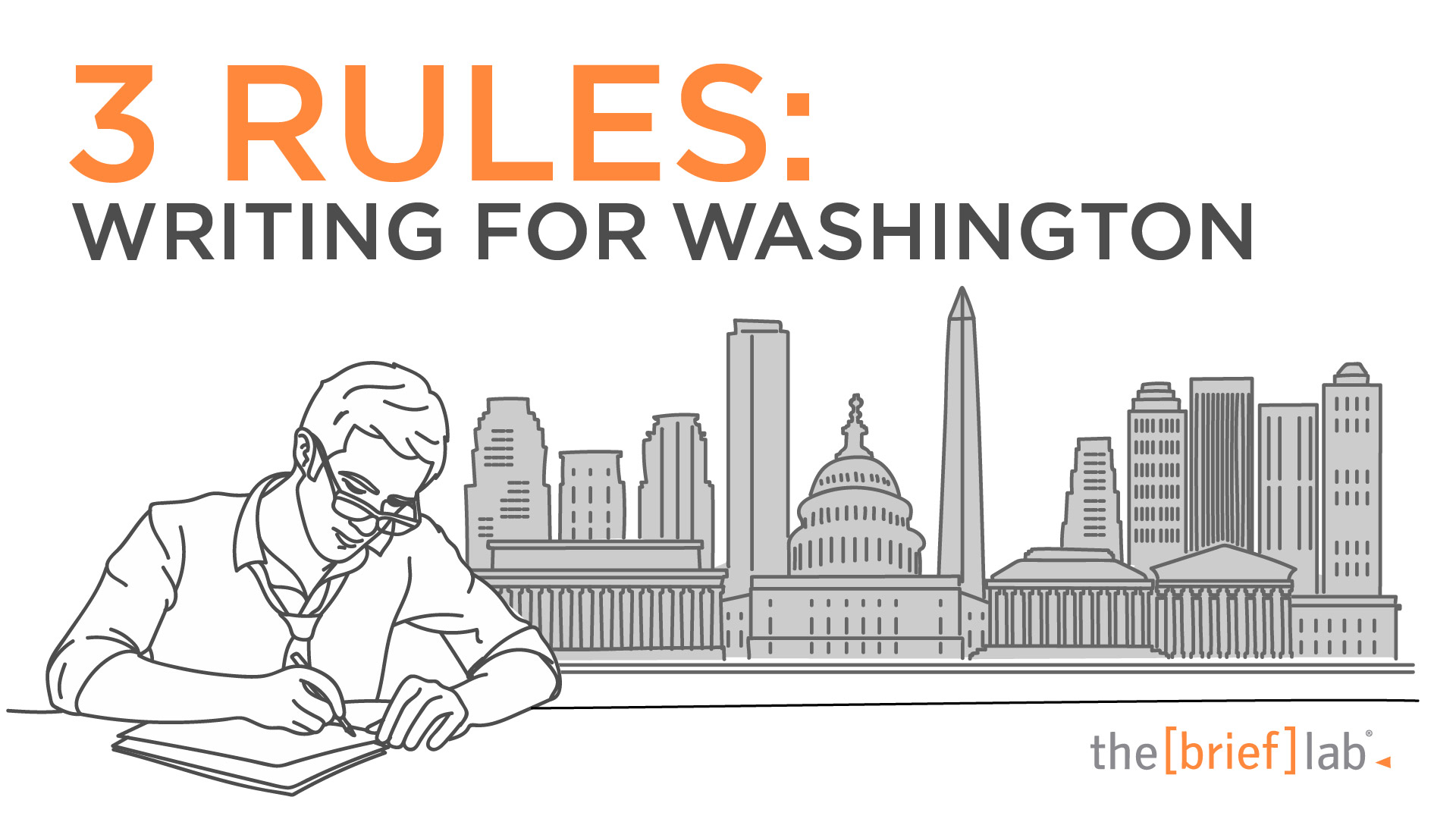
Senior leaders in Washington DC rely heavily on the writing of experts, both on and off their staffs, to keep them informed and facilitate decision-making. A large portion of this information comes across their desk in the form of briefing papers, white papers, info papers, non-papers (don’t ask), etc.
Too long didn’t read
Unfortunately, based on my experience, many of the papers written for senior leaders have little to no impact, assuming they are read at all. One of the main reasons these papers don’t get read is that they’re way too long. They write dissertation-length pieces or multi-page tomes, but busy senior leaders simply don’t have time or mental capacity to read it all. Often the executive summary (EXSUM) alone is 2-3 pages, and readers end up asking for an EXSUM of the EXSUM!
“The art of writing lay in thrift”
There’s a great scene in the movie A River Runs Through It where the main character recalls his father teaching him how to write. His father “believed that the art of writing lay in thrift.” As his son hands him each draft, the father repeatedly draws red lines through his son’s essay and admonishes him to write “half as long” and “again, half as long” until the son finally gets the essay down to half a page and the father responds with “good — now throw it away.”
If we want our written work to actually be read by senior leaders, we have to take the same approach.
3 simple rules
1. Start with the Bottom Line Up Front (BLUF). Start with 2-3 sentences that communicate the purpose of the paper and the call to action for the reader (e.g., make a specific decision). The BLUF sets the context so they can better absorb the information they’re about to read. I wrote a separate article that dives a little deeper into BLUF as it relates to email here.
2. Stick to the essential details–tell them the time, not how to build a watch. Most of us feel the need to explain to our bosses how we arrived at our conclusions or the process we used to determine the facts. Senior leaders frankly don’t care. They trust that you did your due diligence. If they have questions on the content, they can always ask. Remember, this isn’t your math homework; you don’t have to “show your work”. Save the details for appendices or annexes.
3. Finally, stick the landing. Olympic gymnasts lose points when they fumble their landing. Similarly, you’ll lose points with your boss if she has no idea where you stand or what response you expect from her. Make sure your conclusions and recommendations are clear. If you need her to make a decision, tell her twice—in the BLUF and again in the ending—and recommend to her what that decision should be.
Effective writing is concise writing
Write with brevity and clarity, and your bosses will pay attention.
About the author: Brigadier General (ret.) Rich Gross is a strategic advisor to the Brief Lab and the Sheffield Company. He spent over 30 years in the military, serving as the senior legal advisor to multiple senior leaders, to include the Chairman of the Joint Chiefs of Staff. While serving in the military, he gained a reputation for clear and concise communications. Follow Rich on Twitter at @RichGross85.